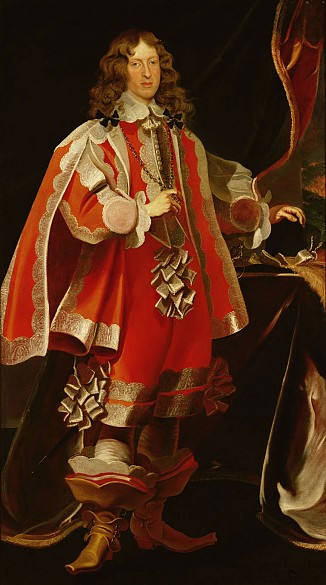Archduke Ferdinand Karl of Tyrol
The reign of Ferdinand Karl in Tyrol is regarded as one of the darkest chapters in Habsburg history: corruption, misgovernment and a judicial murder do not contribute to painting a favourable picture of this member of the dynasty.
Ferdinand Karl was the eldest son of Archduke Leopold V and Claudia de Medici. His father had founded the Tyrolean cadet branch of the Habsburgs and Ferdinand was to be his successor. As he was only four years old when his father died, his mother reigned in his stead.
In 1646 he attained his majority and began to rule over Tyrol and the Austrian Forelands. He attempted to rule in an autocratic manner without involving the Estates, but was reckless in his handling of responsibility. His extravagant lifestyle and huge expenditure on courtly entertainments burdened the country with debt. Faced with lack of money, Ferdinand simply sold or pledged sovereign rights.
Under his reign favouritism and corruption flourished. Weakened by intrigues against him, Ferdinand’s court chancellor Wilhelm Biener, who had overseen the affairs of government under his father and also rendered valuable service during the tutelary regency of Ferdinand’s mother, was dismissed and eventually sentenced to death. Evidently based on calumny, his sentence is regarded as judicial murder.
Ferdinand Karl was married to Anna de Medici (1616–1676), a niece of his mother. Anna was a first cousin of her husband twice over, as her mother was Archduchess Maria Magdalena, a paternal aunt of Ferdinand Karl.
He had three daughters with Anna. The eldest daughter Claudia Felicitas later became the second wife of Emperor Leopold I, but died young.
The inglorious reign of this Tyrolean Habsburg ended with his early death. Ferdinand Karl died in 1662 at the age of thirty-four.















